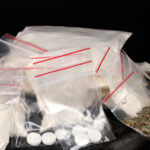Poisoning Offences in New South Wales

A judge in Downing Centre District Court has sentenced a 22-year old woman to a full term of 6 years in prison with a minimum of 3 years for endangering her baby’s life by administering a harmful medication.
The woman had been giving her 18-month old the epilepsy medication Tegretol, despite knowing he did not suffer from the condition.
The drug made her son “extremely ill”, resulting in hospitalisation on 30 separate occasions.
She continued to give her son the drug after being directed not to do so by the son’s paediatrician, who ultimately reported the matter to police.
When police asked the woman why she engaged in the conduct, she allegedly told them “I wanted a break… He was attached to me, he was never out of my sight.”
Medical diagnosis
During the sentencing hearing, the court heard the woman suffered from Factitious Disorder Imposed on Another (FDIA), also known as Munchausen Syndrome by Proxy (MSbP).
The condition is characterised by caregivers inflicting health issues – or manufacturing the appearance of such issues – in a person they are caring for.
The most common practise is for a caregiver to inflict injuries to a child in order to gain attention, sympathy and/or time away from the child.
Research suggests that 95% of perpetrators are mothers.
Subjective factors
The sentencing judge took into consideration the diagnosis of FDIA, as well as material suggesting the defendant had a history of mental health issues, including mood swings, depression and feelings of worthlessness.
He nevertheless determined that nothing other than a full time custodial sentence was warranted given the objective seriousness of the offence, which involved the repeated administration of a medication the woman knew was making her baby “very ill”.
In recovery
After the defendant’s arrest, her son was placed in a family member’s care, who said outside court that the boy is “doing well”.
“There’s definitely no winners in this situation, a very traumatic and lengthy process”, the family member stated.
“He’s in good spirits with us… There is a lot of love, a lot of support and that will definitely continue more so as he develops in age”
Poisoning Offences in New South Wales
Using poison to endanger life or inflict grievous bodily harm is an offence under section 39 of the Crimes Act 1900 (NSW) which carries a maximum penalty of 10 years in prison.
To establish the offence, the prosecution must prove beyond reasonable doubt that:
- The defendant administered or caused another to take a poison, intoxicating substance or other destructive or noxious thing,
- He or she intended by doing so to injure the other person, or was reckless as to whether the other person would be injured, and
- The substance in fact endangered the life of, or caused grievous bodily harm to, the other person.
‘Grievous bodily harm’ means ‘very serious harm’
It includes, but is not limited to:
- The destruction of a foetus, other than by a medical procedure
- Any permanent or serious disfiguring, and
- Any grievous bodily disease
A person is ‘reckless’ if they realised injury could possibly be inflicted but went ahead with the act regardless.
Where a defendant is tried under section 39 but the prosecution fails to establish all three ‘elements’, the fact-finder (eg the jury) may instead return a verdict of guilty to an offence under section 41 of the Crimes Act, provided of course that the elements of that offence are established. This is known as a ‘statutory alternative’.
Section 41 prescribes a maximum penalty of 5 years in prison for administering or causing another to take a poison, intoxicating substance or other destructive or noxious thing with the intention to injure, or cause distress or pain to, the other person.
The offence does not require proof of endangerment of life or infliction of grievous bodily harm.
Another statutory alternative is contained in section 41A, which relates to the poisoning of water supplies. The section sets a maximum penalty of 5 years in prison for introducing any poison or other destructive or noxious thing into a supply of water with the intention of injuring any person. Again, proof of endangering life or actually inflicting harm is not required.






